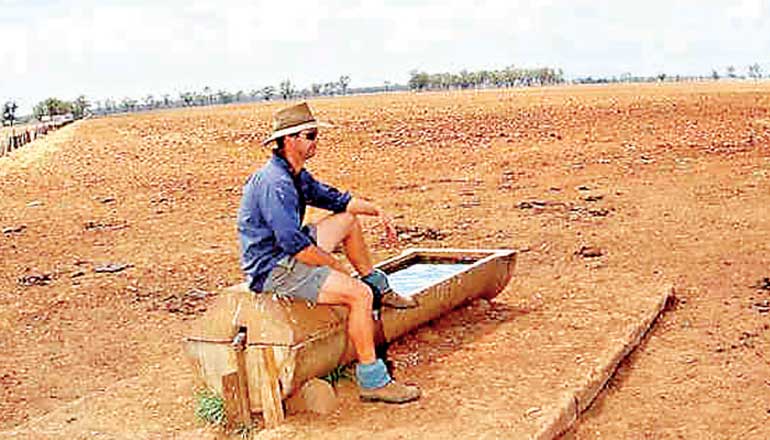Monday Feb 23, 2026
Monday Feb 23, 2026
Monday, 18 September 2017 11:52 - - {{hitsCtrl.values.hits}}
 ROME (Thomson Reuters Foundation): More than 1.3 billion people live on agricultural land that is deteriorating, putting them at risk of worsening hunger, water shortages and poverty, the United Nations Convention to Combat Desertification (UNCCD) said.
ROME (Thomson Reuters Foundation): More than 1.3 billion people live on agricultural land that is deteriorating, putting them at risk of worsening hunger, water shortages and poverty, the United Nations Convention to Combat Desertification (UNCCD) said.
People’s use of the earth’s natural reserves has doubled in the last 30 years. Now a third of the planet’s land is severely degraded, and every year 15 billion trees and 24 billion tonnes of fertile soil are lost, UNCCD said.
“The land we live on is being strained to breaking point. Restoration and conservation are key to its survival,” UNCCD said in a report launched in Ordos, China.
UNCCD promotes good land stewardship, and is the only legally binding international agreement on land issues.
As land becomes less productive – which can happen through deforestation, overgrazing, flash floods and drought – people are forced to migrate to cities or abroad, there is greater likelihood of conflict over dwindling resources, and countries’ economies are hit, said UNCCD deputy executive secretary Pradeep Monga.
“If you don’t fix land degradation, we get into a cycle where people are losing their livelihoods, their homes, their fields,” he said.
And if the amount of productive land shrinks, less will be available to feed the world’s population which is predicted to increase to more than 9 billion people by 2050, up from 7 billion today.
“If we can stop land degradation and green our deserts, we can easily become food secure,” Monga told the Thomson Reuters Foundation.
Small choices, like families cutting back on food waste, as well as improvements to land management, smarter ways to farm, and national policies to stop degradation, can make a lot of difference, he added.
China, which introduced the world’s first law to prevent and control desertification in 2002, has greened hundreds of thousands of hectares of desert in Inner Mongolia resulting in more food, more jobs and a better life for the local people, Monga said.
“People’s confidence in their quality of life is back, and these places become much more habitable,” he said.
Drought degrades land, but if countries have good drought plans in place and act on them then people can be protected from its worst impacts.
“We cannot prevent drought but we can prevent the calamity and crisis that comes with that. It’s like facing a hurricane - we have time,” he said.
“If we manage the land well, the world will become a much better place to live in every sense.”